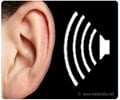Daily consumption of coffee can lead to insomnia over a long-term. It can also cause fatigue, nausea, and headaches. Caffeine drinkers might find it hard to fall asleep, but slowly reducing coffee intake can help fight insomnia.

‘Even 1 cup of coffee can lead to sleepless nights. Therefore, reducing the intake of coffee over a period and replacing coffee with tea can help fight insomnia.’





“Caffeine blocks the effects of adenosine, a neurotransmitter thought to promote sleep, and even a single cup of coffee can lead to a sleepless night. Adenosine works on the nerve activity to slow it down and makes an individual sleepy. However, caffeine acts on adenosine and stops an individual from becoming tired,” said Dr. N. Dinesh, consultant neurologist.Only some people are affected and cannot sleep with just a single cup of coffee, and some can sleep even after coffee in the evening.
A person who is finding it difficult to sleep after consuming more coffee is caffeine sensitive, and insomniacs need to avoid coffee to prevent them from having sleepless nights.
Also, caffeine increases the need to urinate very often and can disturb sleep. Caffeine sensitive people need to stop taking caffeine, especially after 2 pm to prevent insomnia.
Lack of sleep can also lead to chronic diseases including diabetes, cardiac disorders, obesity, high blood pressure, and depression.
Advertisement
Advertisement














